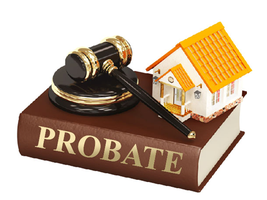Be Careful With Inheritances and Medicaid

Many mistakes can be made when it comes to inheritances and Medicaid. Those mistakes can be costly. When a person is drawing Medicaid benefits and inherits money or property, that inheritance jeopardizes the benefits. The inheritance must be handled carefully to minimize expensive penalties. What “careful” means, though, can be misunderstood without the necessary expertise. […]
Essential Things to Understand About Estate Planning

Estate planning may sound like the domain of the very wealthy, however, in the eyes of the law, an estate is simply the aggregate of property an individual owns, and most everyone owns something. Property ownership includes individual as well as jointly owned bank accounts, stocks and bonds, retirement accounts, real estate, jewelry, vehicles, your […]
How an Elder law attorney Can Help You

Elder law encompasses a wide range of legal matters affecting an older or disabled person. An elder law attorney or certified elder law attorney (CELA) specializes as a legal advocate for aging adults and their loved ones Issues related to guardianship, retirement, health care including advance directives, long term care planning, Social Security, Medicare and […]
What It Means To Be a “Fiduciary”

One day, someone you love may ask you to be a power of attorney. Your person may be planning for when they might become unable to take care of their affairs. For example, they might become disabled or incapacitated, and they would need a trusted person to step in and manage for them. This is […]
Medicaid Crisis Planning

Medicaid is both a joint state and federal program available to individuals who meet certain asset requirements that help them pay for long-term care (LTC) costs. Long-term care often creates devastating financial impacts on Americans, particularly the elderly, and for those family members who lose hours of income (and more) while providing care for their […]
Knowing The Difference Between a Will and a Trust

Trusts and Wills have specific and quite different benefits for estate planning purposes. Each state has specific laws and regulations governing these legal documents. You can have both a will and a trust; however, the information in each should compliment the other. As a standalone, it is not accurate to say one is better than […]
Daniel R. Miller Named to Super Lawyers 2020 Rising Stars

Miller & Miller Law Group PLLC is pleased to announce that Daniel R. Miller has been named to the 2020 New York Metro Rising Stars List. To qualify, New York Metro Rising Stars must be 40 years old or younger or have been practicing for less than 10 years. Recipients represent the top 2.5% percent […]
What are non-probate assets and how to recover them?

When a person passes away, their estate is often comprised of probate assets and non-probate assets. Probate assets are assets that will be distributed according to the decedent’s Last Will & Testament. These assets are titled solely in the decedent’s name. Non-probate assets are sometimes called testamentary substitutes. These assets have beneficiaries associated with the […]
What commissions are an Executor or Administrator entitled to?

An Executor or Administrator of a decedent’s estate is entitled to a commission. The job of the Executor or Administrator is to gather all the assets of the decedent, pay the liabilities, and distribute the funds according to the decedent’s Last Will & Testament or according to the intestacy rules of New York. The executor […]
What is an Ancillary Probate or Ancillary Administration Proceeding?

When a person passes away with real property in multiple states, an ancillary proceeding may be necessary. The primary probate proceeding (if the person passed away with a Last Will & Testament) or primary administration proceeding (if the person passed away without a Last Will & Testament) is commenced in the State and County where […]
